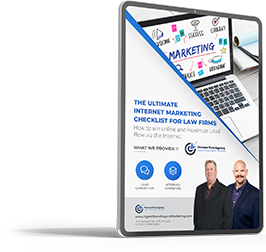When was the last time you searched for a nearby restaurant or local business on your phone? Chances are, the results you saw were influenced by something called local listing management. For insurance agents, mastering this often-overlooked aspect of digital marketing can be a game-changer, helping you stand out in your community and attract more clients right in your area.
Local listing management is more than just ensuring your name and phone number show up when someone Googles “insurance agents near me.” It’s about making sure your business information is accurate, consistent, and optimized across all the places potential clients might look—Google, Bing, Yelp, and even Apple Maps. When done right, this strategy doesn’t just boost your visibility online; it builds trust with your audience and positions you as a go-to expert in your field.
In this guide, we’ll explore the nuts and bolts of local listing management, offering actionable tips and strategies to help you ensure your business is always front and center when someone in your community needs insurance. Whether you’re new to digital marketing or looking to fine-tune your approach, you’ll find the insights you need right here.
Key Takeaways from “The Ultimate Guide to Local Listing Management for Insurance Agents”
- Local Listing Management is Crucial for Visibility: Ensuring your business information is accurate and consistent across platforms like Google, Bing, Yelp, and Apple Maps significantly enhances your local SEO, making it easier for potential clients to find you.
- Consistency Builds Trust: Maintaining consistent NAP (Name, Address, Phone Number) information across all listings is essential. Inconsistencies can confuse potential clients and negatively impact your search engine rankings.
- Optimizing Major Platforms is Essential: Focus on optimizing your Google Business Profile, Bing Places, and Yelp listings to ensure your business appears prominently in local searches. Each platform requires careful management of details like business hours, descriptions, and categories.
- Leverage Reviews and Visual Content: Positive reviews are critical for building trust and improving search rankings. Actively encourage reviews and respond to them. Additionally, using photos and videos in your listings can make your business more relatable and appealing.
- Regular Monitoring and Updates are Necessary: Local listing management is an ongoing process. Regularly monitor and update your listings to reflect any changes in your business, such as new hours or services, to avoid outdated information that could harm your reputation.
- Advanced Tactics Can Maximize Local Visibility: Use localized content creation, geo-targeted ads, and local partnerships to further boost your presence in your community. These strategies help you connect with your audience on a more personal level and differentiate yourself from competitors.
- Avoid Common Mistakes: Ignoring negative reviews, failing to update listings, and overlooking secondary directories can harm your local SEO efforts. Address these areas proactively to maintain a strong and trustworthy online presence.
Why Local Listing Management Matters
The Impact on Local SEO
Local listing management is a critical component of local search engine optimization (SEO). When someone searches for an insurance agent in your area, search engines like Google and Bing scour the web to find the most relevant and trustworthy results. If your business information is inconsistent or missing from key platforms, you could be missing out on potential clients without even knowing it.
Consider this: nearly 46% of all searches on Google have local intent. This means that almost half the time someone searches online, they’re looking for something nearby—whether that’s an insurance policy, a good restaurant, or a service provider. For insurance agents, this local intent is gold. People searching for insurance are often ready to take action, making it essential that your business appears prominently in search results.
Building Client Trust and Credibility
Accurate and consistent listings do more than just improve your search rankings—they build trust. Imagine a potential client finding three different addresses or phone numbers for your business online. Confusion like this can quickly erode trust, causing them to move on to a competitor whose information is clear and consistent.
Trust is the foundation of any client relationship, and in the insurance business, it’s crucial. By ensuring your local listings are accurate and up to date, you’re signaling to potential clients that you’re a professional who pays attention to details—qualities they’ll want in their insurance agent.
Staying Competitive in the Insurance Market
In a crowded market, every little advantage counts. With more insurance agents recognizing the power of local SEO, optimizing your local listings can help you stay ahead of the competition. It’s not just about being found; it’s about being the top choice when clients are ready to buy.
When your business consistently shows up in local searches, with complete and accurate information, it sends a powerful message that you’re active, reliable, and ready to help. This visibility can be the deciding factor that turns a searcher into a client.
Key Components of Effective Local Listings
NAP Consistency (Name, Address, Phone Number)
One of the foundational aspects of local listing management is NAP consistency—ensuring that your business’s name, address, and phone number are the same across all platforms. This might seem simple, but inconsistencies can arise easily, especially if your business has relocated, changed phone numbers, or has multiple locations.
Search engines cross-check your business information across various websites to confirm its accuracy. If they find discrepancies, it can hurt your local search rankings. For example, if your business is listed with one phone number on Google and a different one on Yelp, this inconsistency could cause search engines to doubt the reliability of your information, pushing your listing down in the results.
Business Description and Categories
Your business description is your chance to tell potential clients what sets you apart from other insurance agents in the area. Your description should be concise, keyword-rich, and tailored to your ideal client. Mention the types of insurance you specialize in—whether it’s auto, home, life, or Medicare—and any unique services or benefits you offer.
Choosing the right categories for your business is also crucial. Most platforms allow you to select primary and secondary categories that describe your business. Be specific—if you specialize in Medicare insurance, make sure that’s clear in your categories. This helps search engines understand what you do and match your business with the right searches.
Business Hours and Special Announcements
Nothing frustrates a potential client more than showing up to your office during what they thought were business hours, only to find the doors locked. Keeping your business hours up to date on your listings is essential for ensuring clients can reach you when they need to.
Additionally, platforms like Google Business Profile allow you to post special announcements. Whether it’s holiday hours, office closures, or special promotions, using these features keeps your clients informed and engaged.
Website and Social Media Links
Your local listings should act as a gateway to the rest of your online presence. Include links to your website, Facebook page, LinkedIn profile, and any other social media platforms where you’re active. This not only drives traffic to these channels but also enhances your credibility by showing that you’re engaged across multiple platforms.
Optimizing Your Local Listings on Major Platforms
Google Business Profile (formerly Google My Business)
Google Business Profile is perhaps the most crucial platform for local listing management. It’s often the first thing potential clients see when searching for your services. Setting up and optimizing your profile involves several steps:
- Claim Your Business: If you haven’t already, claim your business on Google. This allows you to manage the information that appears in search results and Google Maps.
- Complete Your Profile: Fill out every section of your profile, including NAP information, business hours, descriptions, and categories. The more complete your profile, the better.
- Leverage Google Posts: Use Google Posts to share updates, promotions, and news directly in your profile. This keeps your listing fresh and engaging.
- Respond to Reviews: Actively manage and respond to reviews. Engaging with clients, whether the feedback is positive or negative, shows that you value their input.
Bing Places
While Google dominates the search market, Bing shouldn’t be overlooked, especially since it’s the default search engine for many devices and browsers. Setting up Bing Places for Business is similar to Google, and it’s just as important to keep this listing accurate and up to date.
Yelp for Business
Yelp remains a powerful platform, especially for service-based businesses. Many people rely on Yelp reviews to make decisions about where to take their business, so maintaining a strong presence here is crucial.
- Claim and Verify Your Business: Ensure that your business is claimed and verified on Yelp.
- Encourage Reviews: Politely ask satisfied clients to leave reviews on Yelp. This can significantly boost your local visibility.
- Engage with Clients: Respond to reviews, showing potential clients that you are attentive and responsive.
Apple Maps and Other Directories
Apple Maps is another key player in the local search ecosystem, especially for users of Apple devices. Ensuring your business is listed and optimized here can help you reach a different segment of potential clients.
Don’t forget about other directories like Yellow Pages and the Better Business Bureau. These platforms still hold value, particularly for older demographics who may prefer traditional search methods.
Proven Strategies for Optimizing Local Listings
Leveraging Reviews and Ratings
Reviews are the lifeblood of local listings. Positive reviews not only boost your rankings but also build trust with potential clients. Encourage satisfied clients to leave reviews and make it easy for them to do so by providing direct links in your email signatures or on your website.
Responding to reviews is equally important. A simple “thank you” to a positive review or a thoughtful response to a negative one can go a long way in showing that you care about your clients’ experiences.
Using Photos and Videos
Visual content can significantly enhance the appeal of your local listings. Photos of your office, team, and even client testimonials (with permission) add a personal touch that can make your business more relatable and trustworthy.
Consider uploading short videos that introduce your services or explain complex insurance topics in simple terms. This not only helps with SEO but also allows potential clients to get to know you before they even make contact.
Regular Monitoring and Updating
Local listing management isn’t a one-and-done task. It requires regular monitoring to ensure that all information remains accurate and up to date. Use tools like Google Alerts or Moz Local to keep track of your listings and be notified of any changes or issues.
Regular updates are also crucial. If you’ve expanded your services, changed your business hours, or moved to a new location, make sure this information is reflected across all your listings as soon as possible.
Local Listing Management Tools
Managing multiple listings across various platforms can be time-consuming, but several tools can help streamline the process. Tools like Moz Local, Yext, and BrightLocal allow you to manage your listings from a single dashboard, ensuring consistency and saving you time.
When choosing a tool, consider factors like ease of use, cost, and the platforms it supports. Many of these tools also offer additional features like review monitoring and analytics, which can provide valuable insights into your local SEO performance.
Hypothetical Scenarios and Best Practices
Scenario 1: Inconsistent Listings Across Platforms
Imagine you discover that your business has three different phone numbers listed across various platforms—one on Google, another on Yelp, and a third on your website. This inconsistency is likely confusing potential clients and negatively impacting your search rankings.
To rectify this, you would first need to audit all your listings, identifying discrepancies and correcting them. Then, use a local listing management tool to ensure that your information remains consistent across all platforms going forward. Over time, you’ll likely notice an improvement in your local search rankings and an increase in client inquiries.
Scenario 2: Leveraging Reviews for Business Growth
Let’s say you’ve been encouraging your clients to leave reviews, and you’re starting to see a steady stream of positive feedback on Google and Yelp. You decide to take it a step further by responding to each review, thanking clients for their business, and addressing any concerns they may have mentioned.
This proactive approach not only boosts your local SEO but also demonstrates your commitment to client satisfaction. Over time, these positive interactions can help build a strong reputation in your community, attracting even more clients.
Scenario 3: Responding to Negative Reviews
Suppose you receive a negative review on Yelp from a client who was unhappy with the service they received. Rather than ignoring it, you take the time to respond thoughtfully, acknowledging their concerns and offering to discuss the issue further offline.
This approach shows other potential clients that you are responsive and care about resolving issues, which can turn a negative situation into a positive one. In some cases, the reviewer may even update their review after you’ve addressed their concerns.
Advanced Tactics for Maximizing Local Visibility
Localized Content Creation
Creating content that speaks directly to your local audience can significantly boost your visibility. This could be blog posts about local insurance needs, tips for clients in your area, or coverage of local events where you’re participating.
For example, if you’re an agent in Florida, you might write about the importance of hurricane insurance and share tips on preparing for storm season. This type of content not only helps with local SEO but also positions you as a knowledgeable resource in your community.
Geo-Targeted Ads
Geo-targeted ads on platforms like Google and Facebook can help you reach potential clients right in your area. By focusing your ad spend on a specific geographic area, you can ensure that your message reaches the right audience.
For example, if you specialize in auto insurance, you could run a Google Ad targeting people within a 10-mile radius of your office who are searching for car insurance. This targeted approach increases the likelihood of converting searchers into clients.
Building Local Partnerships and Sponsorships
Partnering with other local businesses or sponsoring community events can also boost your local visibility. For example, sponsoring a local youth sports team or participating in a community event gives you a chance to connect with potential clients in person.
These partnerships not only increase your exposure but also strengthen your ties to the community, further enhancing your reputation as a trusted local insurance agent.
Common Mistakes to Avoid
Ignoring Negative Reviews
It can be tempting to ignore negative reviews, but doing so can harm your reputation. Addressing negative feedback shows that you care about your clients’ experiences and are committed to resolving issues.
Failing to Update Listings
Outdated information can lead to missed opportunities and frustrated clients. Regularly update your listings to reflect any changes in your business, such as new hours, services, or locations.
Overlooking Secondary Directories
While Google and Yelp are important, don’t forget about secondary directories like Yellow Pages and the Better Business Bureau. These platforms still hold value, especially for certain demographics, and can contribute to your overall local SEO strategy.
Conclusion
Local listing management is a powerful tool for insurance agents looking to enhance their online presence and attract more local clients. By maintaining consistent and accurate listings across all platforms, leveraging reviews, and employing advanced tactics like geo-targeted ads and localized content, you can stand out in your community and grow your business.
Now that you have a deeper understanding of how local listing management can benefit your insurance agency, why not take the next step? Schedule a strategy session with Agent Branding and Marketing today. We’ll work with you to tailor a local SEO strategy that meets your specific needs, helping you attract more clients and grow your business. Don’t leave your local presence to chance—let’s start optimizing your listings today.
FAQs
What is local listing management, and why is it important for insurance agents?
Local listing management involves ensuring your business information (name, address, phone number, etc.) is accurate, consistent, and optimized across various online platforms like Google, Bing, Yelp, and Apple Maps. For insurance agents, it’s crucial because it enhances your visibility in local search results, builds trust with potential clients, and helps you stand out from competitors in your area.
How does NAP consistency impact my local search rankings?
NAP consistency (Name, Address, Phone Number) is vital for local SEO. Search engines cross-check your business information across multiple platforms. If there are discrepancies, such as different phone numbers on different sites, it can cause search engines to doubt the reliability of your information, leading to lower rankings in local search results.
Which platforms should I focus on for local listing management?
The key platforms to focus on are Google Business Profile (formerly Google My Business), Bing Places, and Yelp. Additionally, consider optimizing your listings on Apple Maps and secondary directories like Yellow Pages and the Better Business Bureau, which are valuable for reaching specific demographics.
How can I encourage my clients to leave reviews?
Encourage satisfied clients to leave reviews by making it easy for them. Provide direct links to your review pages in email signatures, follow-up emails, and on your website. You can also politely ask clients in person after a successful interaction. Responding to reviews, both positive and negative, is also important to show you value client feedback.
What should I include in my business description for local listings?
Your business description should be concise, keyword-rich, and tailored to your ideal clients. Mention the specific types of insurance you offer, such as auto, home, life, or Medicare, and highlight any unique services or benefits. This helps search engines and potential clients quickly understand what sets your agency apart.
How often should I update my local listings?
You should update your local listings anytime there is a significant change to your business, such as a change in address, phone number, business hours, or services offered. Regular monitoring, at least quarterly, is recommended to ensure all information remains accurate and up to date.
What tools can help me manage my local listings more effectively?
Tools like Moz Local, Yext, and BrightLocal can streamline the process of managing your local listings. These tools allow you to update information across multiple platforms from a single dashboard, monitor reviews, and gain insights through analytics, helping you maintain consistency and save time.
How can localized content help improve my local SEO?
Localized content, such as blog posts about insurance needs specific to your area or coverage of local events, helps improve your local SEO by making your website more relevant to your community. It positions you as a knowledgeable resource and boosts your visibility in local search results.
What are some common mistakes to avoid in local listing management?
Common mistakes include ignoring negative reviews, failing to update outdated listings, and overlooking secondary directories. These missteps can harm your reputation, lead to lost business opportunities, and negatively impact your local SEO. Proactively addressing these areas is key to maintaining a strong online presence.
How can I use geo-targeted ads to attract local clients?
Geo-targeted ads on platforms like Google and Facebook allow you to focus your advertising on a specific geographic area, ensuring your message reaches potential clients nearby. For example, you can target people within a certain radius of your office who are searching for insurance services, increasing the likelihood of converting these searchers into clients.
This article is a collaboration between Carl Willis and OpenAI’s ChatGPT. Created on August 23, 2024, it combines AI-generated draft material with Willis’ expert revision and oversight, ensuring accuracy and relevance while addressing any AI limitations.






